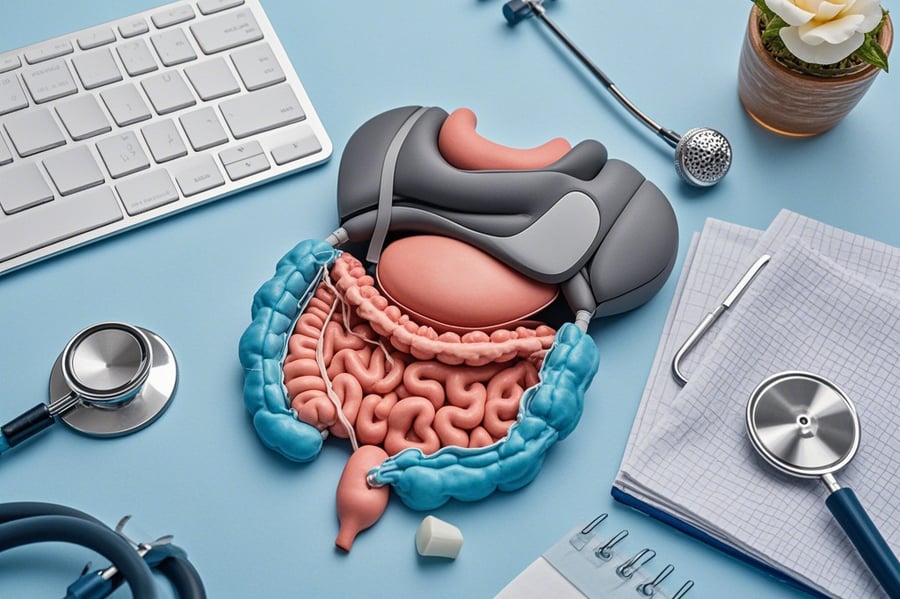Early Signs of Crohn's Disease Women Often Miss

1. Persistent Fatigue
It’s normal to feel tired after a long day, but with Crohn’s, fatigue is more than just being sleepy. It’s a deep, lingering exhaustion that doesn’t go away, even with rest. Many women write this off as stress, but fatigue in Crohn's disease results from chronic inflammation and the body’s increased energy demands to fight it. If you're constantly feeling drained despite adequate sleep, it may be time to talk to a doctor.
2. Abdominal Pain or Cramping That Comes and Goes
For many women, abdominal cramps may just seem like a part of menstrual discomfort or digestive upset. But Crohn’s-related abdominal pain often feels different. It’s usually located in the lower right abdomen and can vary in intensity. If you notice recurring pain that doesn’t seem tied to your cycle or eating habits, consider keeping a symptom journal and consulting with a healthcare professional.
3. Unexplained Weight Loss
Weight fluctuations are common, but significant, unexplained weight loss could be a red flag. Women often overlook this, attributing it to a busy schedule or changes in appetite. However, Crohn’s disease affects nutrient absorption, which can lead to rapid, unintended weight loss. If you’re losing weight without trying, it’s worth looking into.
4. Frequent Diarrhea or Bowel Changes
Occasional diarrhea isn’t usually a cause for concern, but if it becomes a regular occurrence, it might be a sign of Crohn’s. In Crohn’s disease, inflammation in the digestive tract can lead to frequent and urgent bowel movements, often accompanied by mucus or blood. Keeping track of changes in your bowel habits is essential—persistent diarrhea, especially when it’s painful or disrupts daily life, warrants medical attention.
5. Skin Changes and Mouth Sores
Many people don’t realize that Crohn’s disease can manifest beyond the gut, affecting areas like the skin and mouth. Unexplained rashes, red bumps on the skin (often on the legs), and painful sores in the mouth can be early indicators of Crohn’s. Women might mistake these for allergic reactions or unrelated skin issues, but these can be part of an inflammatory response linked to Crohn's.
6. Frequent Fevers Without a Clear Cause
Women with Crohn’s disease sometimes experience low-grade fevers, often as a response to inflammation in the body. These fevers can easily be mistaken for a sign of a mild infection or go unnoticed. However, if you’re experiencing frequent low-grade fevers without other flu-like symptoms, it may be worth investigating.
7. Joint Pain and Swelling
Joint pain is another overlooked symptom, as many women associate it with exercise or aging. Crohn’s disease can lead to arthritis-like symptoms due to inflammation that affects the joints. If you’re experiencing persistent joint pain, swelling, or stiffness, especially alongside other digestive issues, this could be an early sign of Crohn’s.
Why Recognizing These Signs Matters
Early detection of Crohn’s disease can make a significant difference in managing the condition. When caught early, treatment can help reduce symptoms, prevent complications, and improve the quality of life. Ignoring these early signs may lead to a delay in diagnosis, allowing the disease to progress unchecked.
What to Do If You Suspect Crohn’s
If you notice a combination of these symptoms, consider discussing them with a healthcare provider. A gastroenterologist may recommend blood tests, imaging, or a colonoscopy to get a clearer picture. Crohn’s disease may be challenging, but with early intervention and the right treatment, managing symptoms is entirely possible.
Crohn’s disease is often misunderstood and difficult to diagnose, especially in its early stages. By staying informed and attentive to these early signs, you’re taking an essential step in advocating for your health.